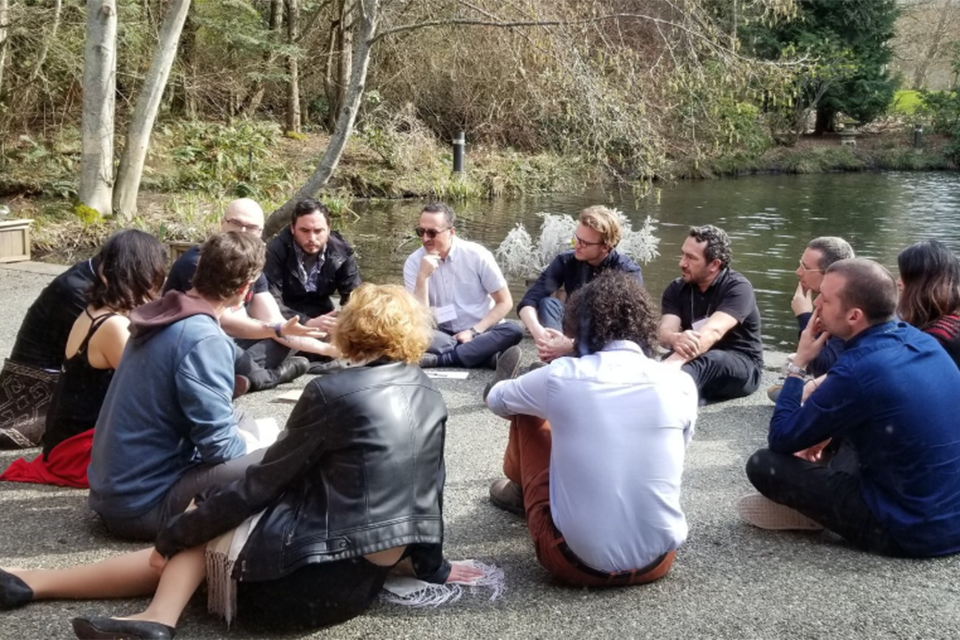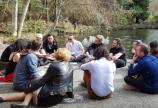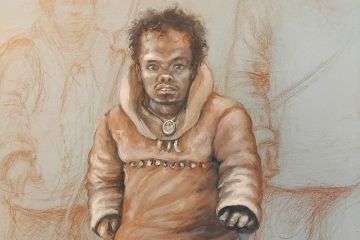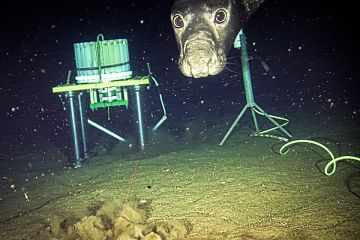Democracy and populism from a transatlantic perspective

What are the major problems facing democracies?
What are the connections between these problems?
And what are the democratic ways to resolve these problems and reconcile all affected by them?
These were the questions for scholars from across Canada and Europe who met at UVic this spring to discuss issues related to democracy and populism from a comparative, transatlantic perspective.
Exploring democracy and populism from a comparative perspective
With the help of two projects co-funded by the Erasmus + Jean Monnet Action of the European Union (CEDoD Canada - Europe Dialogue on Democracy and MSEUCA Communication and Media Strategies for EU experts in Canada) and supported by UVic’s Vice President Research’s Building Connections Fund, the Centre for Global Studies at UVic (CFGS) organized the events, which were dedicated to exploring the challenges and futures of contemporary democracy.
Designed to be different than conventional conferences, the workshops were shaped from the ground up by innovative and open collaborations between invited scholars and local graduate students. The debates during the two-day event series, “Democracy and its Futures,” were moderated to draw attention specifically to current issues relevant to policy makers and civic society groups.
Student engagement in innovative multilogues
Students prepared for several months to be able to facilitate break-out sessions, interview leading scholars and facilitate preparatory webinars. For the 20 graduate students involved, this event series provided an exceptional opportunity to engage with the scholars’ work in an intimate environment and to not only participate in but to guide and direct the workshop debates.
The Democracy and its Future Conference not only brought together some of the world's leading democracy theorists in an innovative multilogue, but created space for graduate students at UVic to participate in the dialogue in a meaningful, more intimate way than other academic venues offer. The experience generated critical new insights into the linkages between distinct democratic traditions for me. It also offered me the incredible opportunity, as a graduate student, to directly engage with theorists who have long inspired my own thinking, and to continue the conversation long after the conference ended.
— Rebeccah Nelems, CFGS Graduate Student Fellow, 2015 Pierre Elliott Trudeau Scholar, PhD Candidate, Sociology / Cultural, Social and Political Thought, UVic
International scholarly contributions included Chantal Mouffe (University of Westminster), Boaventura de Sousa Santos (University of Coimbra & University of Wisconsin-Madison), David Owen (University of Southampton) and several others.
UVic faculty member James Tully (political science) and CFGS Director Oliver Schmidtke were supported in bringing together this group by project manager Pablo Ouziel, a CFGS post-doctoral fellow.
A full list of conference participants is available on the EUCAnet website.
Academia and the media
The first day of the week's events put the relationship between the scholarly world and media into a broader social and political context.
Recognizing that contemporary Western democracies suffer from both a declining trust in the political processes and a massive amount of disinformation spread through media outlets (specifically social media), many of the events focused on the interrelationship between democracy and democratic processes, academia and the media. And during a live-streamed public event in downtown Victoria, Victoria City Councillors Ben Isitt and Laurel Collins joined Schmidtke, Ouziel, Tom Junes (HSSF Sofia), David Owen (University of Southampton), Dennis Pilon (York University) and Antje Wiener (Universität Hamburg) to explore the changing world of communication and mass media.
They also discussed the challenges that expert knowledge faces with the proliferation of ‘fake news,’ and the ability of university experts to contribute to public debates in a meaningful and effective way.
The starting point of the discussion was the assumption that the access to and critical debate of information in the public realm are a key component of contemporary democratic life. In referring to her experience as a public official, Collins discussed how quickly misinformation can spread through social media and how quickly public debate gets heated or escalated.
The second day was dedicated to media networking and shifted the focus to more concrete strategies designed to facilitate the exchange between scholars and media. For this purpose, key stakeholders from the university, media, and government were invited to a brainstorming and networking session.
The objective of this second day was to work collectively and across professional fields towards effective modes of media engagement and build local networks supporting the exchange between the media and scholars.
Crises of Democracy
On the morning of March 21, the invited speakers met to discuss democracy and its futures. The format for the conversation was a circular multilogue that was guided by key issues related to the current state of democracy. In the afternoon, the speakers were joined by the graduate students who prepared for the session by attending a series of local roundtable discussions which they read key texts by the attending senior scholars.
Relevant to the upcoming election in Canada, participant David Owen pointed out that political parties are more agents of governance rather than agents of representation and asked us to consider “what are the global conditions [of] sustainable democracy?”
The March 22 public event, held in the Ceremonial Hall of the First Peoples House, was the feature event and explored how different families of democracies can address present crises of democratic, social, ecological and earth systems.
Chaired by the graduate students, scholars gave perspectives from five overlapping families of democracies: Indigenous forms of community-based democracies; democracies from below throughout the world; broadly conceived representative democracies within modern states; democracy ‘beyond the state’; and Gaia democracy.
By exploring the overlapping relationships among these families of democracies, participants were challenged to find innovative ways to coordinate and cooperate in transforming the local and global systems.
Moving forward
Based on the networking events and formal discussions (both during the workshops and public events), the “Democracy and its Futures” event series initiated a formal transatlantic research network dedicated to further collaboration on the critical exploration of the crises of, and solutions for, democracy.
These events laid the groundwork for a partnership on a joint book project that will include approximately 20 contributions on the “crisis of democracy” from a transatlantic perspective.
In their wrap-up conversation, both Tully and Schmidtke spoke about the complexities of a vibrant democracy and the importance of events like these to bring forward innovative ideas from students, scholars and the community together with differing perspectives to tackle such pressing issues.
Find out more
MSEUCA (Public Debates in Turbulent Times)
CEDoD (Event Report: Democracy and Its Futures)
Recording of “Democracy and its Future: Academia and Media” panel discussion
Photos
In this story
Keywords: international





